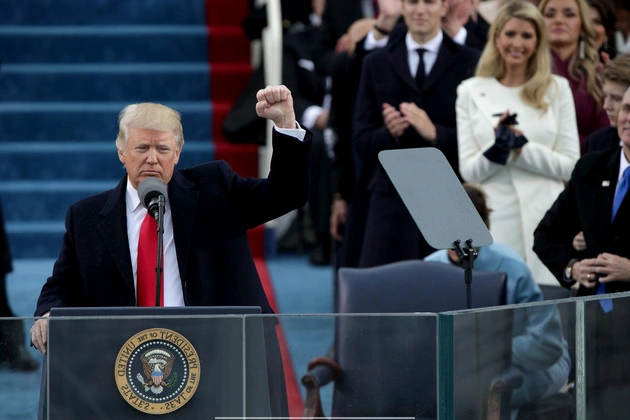
Trump's Inaugural Address: A Reflection of Hope and Division
Donald Trump’s inaugural addresses have stirred contrasting reactions among Americans, reflecting a mix of hope and division. While official Washington was taken aback by his dystopian assessment in 2017, his supporters saw a message of redemption.
Hope Amidst Chaos
For many of Trump’s supporters, his speeches resonated with a sense of hope amid what they perceived as a nation in decline. Words like ‘Make America Great Again’ symbolized a promise of renewal and restoration.
Republican Party leaders in states like North Carolina and Texas recalled feeling positive and hopeful after Trump’s first inaugural address. The theme of redemption and unity was prevalent in his rhetoric, albeit with a distinct lack of traditional conciliatory language.
Despite criticisms and doubts from both sides of the political spectrum, Trump’s base remained loyal, drawn to his unfiltered and often confrontational style of speech.
A Shift in Tone
Over the years, Trump’s speeches have evolved to reflect a more combative and aggressive tone. His rhetoric grew angrier, targeting migrants and minority groups in divisive language.
While some viewed this as a strategic move to tap into public sentiment, others criticized it as contributing to a culture of polarization and anger in political discourse.
Future Directions
As Trump prepares for another term, his speeches are anticipated to focus on themes of strength, unity, and fairness. The challenge lies in balancing his trademark assertiveness with a message that resonates with a broader audience.
While his inaugural addresses may continue to provoke strong reactions, they also serve as a reflection of the current political landscape and the deep divisions within American society.









